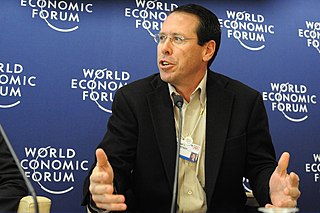A Quote by T.R. Reid
If you get rid of all these giveaways and loopholes and deductions and credits, then you can sharply lower the rates.
Related Quotes
Starting in the '80s or so, after the United States sharply cut its rates, other countries decided they better do it too, and here's how you do it: you just wipe out the exemptions, the deductions, the credits, the depreciation allowances. And people complain, "Oh my God, it's terrible," but you give them much lower rates and you give them an easier form to file, and people accept that tradeoff.
Now, the president would like to do tax reform, which would obviously lower rates for most people in America and make the tax code fair and get rid of loopholes and special treatment. But absent tax reform, the president believes the right way to get our fiscal house in order is ask the wealthy to pay their fair share.
Corporate tax reform is nice in theory but tough in practice. It most likely requires lower tax rates and the closing of loopholes, which many companies are sure to fight. And whatever new, lower tax rate is determined, there will probably be another country willing to lower its rate further, creating a sad race to zero.
Fannie and Freddie made two-thirds of all subprime mortgages. That is not a free market institution. That entity, along with the Fed printing too much money back in '03 and '04, caused the housing collapse. So we need to take free markets seriously. That means we have to put an end to all these tax credits and tax deductions and loopholes.
Mortgage is one of the most popular deductions. It costs the Treasury about $103 billion a year. Now that's money we could use to treat wounded veterans or reduce the deficit or fill the border. Instead, we give it a subsidy to homeowners, and it goes mainly to the richest homeowners in America, because only one third of Americans itemize their deductions. It doesn't work. Many countries have gotten rid of the mortgage interest deduction. Almost all of them have higher homeownership rates than we do.






























